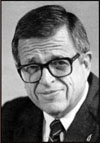Living in the New Dark Ages by Charles Colson The Great Nightfall? T.S. Eliot said there were two ways of looking at a crumbling culture. The first says that a society ceases to be Christian when material prosperity becomes its overriding individual and corporate aim. The second viewpoint maintains that a society has not ceased to be Christian until it becomes something else. Eliot believed that the culture of his day, the 1940s, was predominantly negative yet still Christian. The choice for the future, he said, was between the formation of a new Christian culture and the acceptance of a pagan one.But it seems that something has happened that I believe that the decades since Eliot wrote those words have tipped the balance. Vestiges of Christian influence still remain; but those Christian absolutes that have so profoundly shaped Western culture through the centuries are being consciously rejected by the men and women who direct the flow of information and attitudes to popular culture: communicators, educators, entertainers, and lawyers. As Eliot put it, “Paganism holds all the most valuable advertising space.”1 This cultural crisis is all the more sinister because it is invisible to those who have already become captive to its lie. Radical individualism, which has brought us to this critical juncture, blinds most people to the fact that there is a crisis. Freed from the archaic impediments of family, church, and community, these men and women cannot see how their liberty has enslaved them to alienation, betrayal, loneliness, and inhumanity. They’ve grown so accustomed to the dark, they don’t even realize the lights are out. G.K Chesterton accurately described their plight: “There are commonwealths, plainly to be distinguished here and there in history, which pass from prosperity to squalor, or from glory to insignificance, or from freedom to slavery, not only in silence, but with serenity. The face still smiles while the limbs, literally and loathsomely, are dropping from the body. These are people that have lost the power of astonishment at their own actions.”2 Will the great
nightfall soon be upon us?
Perhaps the barbarians have already won. Perhaps the great nightfall will soon be upon us. Theologian Donald Bloesch proposes that it may be out of the utter destruction of culture that the church will emerge, phoenixlike, from the ashes. We don’t know. But one thing we do know: it isn’t necessary that such predictions comes to pass. As Christians we cannot be historical determinists. There are no inexorable elements propelling history. God is sovereign over human events. Yet it is men and women, under his jurisdiction, who write the pages of history through the sum of their choices. We never know what minor act of hopeless courage, what word spoken in defense of truth, what unintended consequence might swing the balance and change the world. “The death of a man at a critical juncture, his disgust, his retreat, his disgrace, have brought innumberable calamities on a whole nation. A common soldier, a child, a girl at the door of an inn, have changed the face of fortune, and almost of Nature,” said Edmund Burke.4 Burke was referring to historical figures. The man who died at a critical
juncture was Pericles, the Athenian general who shaped his culture; the
man who retreated was Prime Minister Pitt on his retirement from public
life. The child was twelve-year-old Hannibal, taking an oath to one day
attack Rome; and the girl at the inn was Joan of Arc.
> Go to Next
Page
|
. | |||
|
copyright © 2009 The Sword of the Spirit | email: living.bulwark@yahoo.com publishing address: Park Royal Business Centre, 9-17 Park Royal Road, Suite 108, London NW10 7LQ, United Kingdom |
. |

